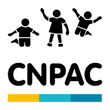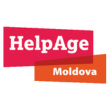Anunțuri de Angajare
- Detalii
- Categorie: Angajări
Project Manager - Accelerating Digital Transformation in Public Sector in the Republic of Moldova Project
Informațiile prezentate în articolul de mai jos pot să nu mai fie actuale sau să nu mai reflecte activitățile și programele curente. Anunțul este păstrat în arhivă pentru a asigura transparența și accesul public la informațiile despre inițiativele și proiectele implementate anterior.
|
Background |
|
|
The COVID-19 pandemic has started as a public health crisis, which has had a socio-economic impact and evolved in a humanitarian and development crisis with much wider ramifications, affecting various vulnerable groups, as well as negatively impacted the economy, in particular the M-SMEs. This proposal is based on the assessments and analyses carried out for the UN Social Economic Recovery and Response Plan to COVID-19 , whose elaboration benefited from the technical leadership of UNDP. Among other assessments, the UNDP-led Socio-Economic Impact Assessment (SEIA) holds a prime spot, with initial results presented in July 2020, and the final report to be published in mid-October 2020. The SEIA puts a strong emphasis on the impact of the crisis on the most vulnerable and the ‘new vulnerable’. The assessment has also reviewed the impact on the private sector and small and medium-sized companies (M-SMEs) across all sectors of the economy. The initial assessment proposed specific (policy and programmatic) recommendations for recovery and strengthening resilience to and during crisis. The current proposal aims to operationalize to the extent possible the proposed interventions supporting the digitalization and digital transformation of the Government and its services, to benefit, principally, the most vulnerable groups and economic sectors.The COVID-19 pandemic has revealed the lack of preparedness of the public sector to quickly adapt policies and tools due to lack and low quality of data; to work remotely and online, including in delivery of social services in education, health, mobility and other sectors for specific population groups; and to adapt the performances of services for the economic sectors to the conditions induced by the crisis. One of the underlying causes is the low digitalization of the public sector and its offer.A significant digital divide was observed between the vulnerable (elderly, rural households, rural children, and youth) and the larger population, as these groups have been unable to access public services such as administrative and health services remotely. This is due to poor digital literacy, lack of hardware, infrastructure, connectivity, etc. Due to pandemic and closure of schools and kindergartens, over 150,000 children of preschool age were unable to attend school and continue their education online due to lack of devices, connectivity issues, educational content not adapted to online teaching, as well as limited teacher familiarization with online methods. Women have been affected by the COVID-19 pandemic more than men by job or income loss/disruption due to their presence (in high numbers) in the most sectors, disproportionate burden of unpaid household and care work, worsened by remote working and extended school closures. Gender gap in digital skills also impedes women’s access to essential public services that are digitalized, as well as digital forms of business and commerce. Gender gap in women presence in STEM (Science, Technologies, Engineering and Mathematics) hinders equal opportunities in labor market and entrepreneurship, as well as access to essential services delivered online. More specifically, in Moldova women occupy only 31% of jobs in the ICT sector and only 19% of digital professions. Only 4.6% of the girls studying in higher education choose STEM as their study profile. As a result, women get jobs with a lower level of qualification and, respectively, of remuneration in the ICT sector. Women’s salaries in the ICT sector are by 33% lower than of men.The business community in the country has been affected by the limitations imposed during the pandemic and companies face difficulties in accessing its customers and partners through existing traditional distribution networks. In response to the COVID-19 effects, companies have shifted further to digital commerce, setting up their digital presence through online platforms/marketplaces, including own direct-to customer commerce platforms . The pandemic has emphasized previously existing challenges: e.g. insufficient digitalization overall, lack of business-friendly frameworks, policies and regulations for e-commerce, digitalization of operations, taxation, market access, including online exports. For example, it is difficult to refund VAT for e-commerce exports. Women are even more disadvantaged by a more difficult access to financing, above -mentioned lack of digital skills, and stereotypical attitudes in the communities.The Government has kept a regular dialogue with the business community through the Economic Council to the Prime Minister to improve the policy response in the context of COVID-19. The Ministry of Economy has drafted and put under public consultation the “Roadmap for boosting the process of digitization of the national economy and development of electronic commerce” (Digital Roadmap) which identifies a series of critical challenges, including the following:
UNDP positioning as ‘partner of choice’ and ‘integrator’ on digital accelerationUNDP Moldova is strategically positioned as an integrator of programmatic solutions with innovative mindset, including bringing forward digital components. UNDP Moldova has established and developed partnerships with the e-Governance Agency for the digitalization of the public services, with the Ministry of Economy and Infrastructure for the digitalization of the services and support to MSMEs (and has been invited to partner on implementation of the above-mentioned Digital Roadmap), with several business associations, in particular the Association of ICT companies, for the support to SMEs and similar.In addition, UNDP Moldova is also partnering with such state institutions as the Parliament, Central Electoral Commission, the National Anticorruption Center, line Ministries (Ministry of Finance, Ministry of Interior, Ministry of Defense, Ministry of Health, Social Protection and Labour, Ministry of Agriculture, Regional Development and Environment, Ministry of Culture) and municipalities, and provides digital solutions to ensure the efficiency and transparency of the public services and to engage with diaspora for boosting the development of local communities.Lastly, UNDP Moldova has significant experience in connecting private sector to development initiatives and supporting the transfer of solutions, including digital, from the private to public sectors. Since 2015, UNDP Moldova has implemented several successful rounds of “Innovation Challenges”, through which solutions such as “www.studii.md” or “Tekwill in every school” were identified and implemented. These solutions have brought private sector expertise and capital for the public use. Some initiatives, such as “Tekwill in every school”, used a blended model of finance matching public funds, awarded competitively, with private funding. The private sector, mainly a vibrant ICT sector, has demonstrated a high interest and commitment to support digitalization of the public sector. The ICT sector has a significant potential to contribute to the digital transformation in the country in general and, that of the public sector in particular, as it benefits from a set of generous incentives, including tax exemptions.In conclusion, UNDP Moldova is viewed as a partner of choice capable to connect available resources in a catalytic manner to accelerate digitalization.In line with the presented context, the purpose of this job position is to manage a brand new initiative by UNDP Moldova, supported through RFF modality, and focused on accelerating digital transformation in the public and private sectors in Moldova (detailed description of the initiative is attached). This implies the management of the human and financial resources, development of new partnerships and support in mobilization of new financial and intellectual resources for UNDP to support digital transformation and through this the achievement of the SDGs in Moldova. |
|
|
Duties and Responsibilities |
|
|
Manage the Initiative ‘Accelerating digital transformation in public sector in the Republic of Moldova
Support collaborative innovation work
Working out loud
Organizational learning and interface with the core business of UNDP
|
|
|
Competencies |
|
|
Corporate Competencies:
Functional Competencies:Knowledge Management and Learning
Job Knowledge/Technical Expertise / In-depth knowledge of the Subject-matter
Development and Operational Effectiveness
Leadership and Self-Management
|
|
|
Required Skills and Experience |
|
|
Education:
Experience:
Language Requirements:
|
|
|
Disclaimer |
|
|
Important applicant informationAll posts in the SC categories are subject to local recruitment.This is a local position, therefore only citizens of the Republic of Moldova or others legally authorized to work in the country are eligible to apply.Please note that only applicants who are short-listed will be contacted.
Vacancy End Date: 04 January 2021 To apply please address the link: http://bit.ly/2JcFLQq |
Publicitate













